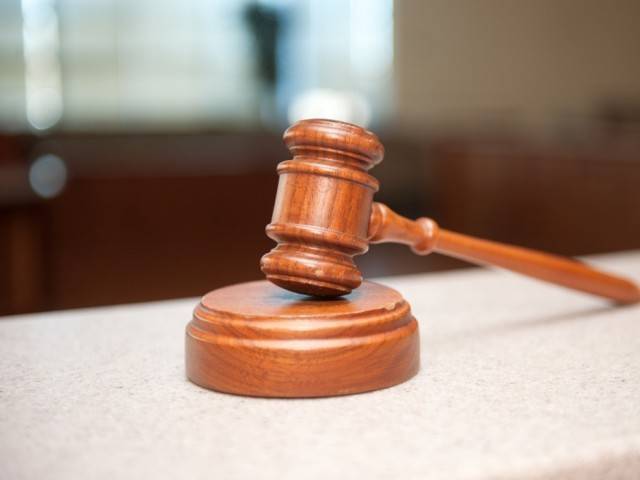
Pakistan Bar Council (PBC) executive member Raheel Kamran Sheikh laments that instead of focusing on issues-based politics, bar representatives often represent popular sentiments of their voters. Their primary objective is to remain in power and receive personal benefits, he maintains.
“In my humble opinion, we, as regulators, have largely failed on most of these fronts primarily owing to the regulatory capture by the politics of the bar,” Sheikh further stated.
Salahuddin Ahmed, a renowned Karachi-based lawyer, while condemning the PIC incident, says that no doubt, there was provocation from the Young Doctors Association that had carried out a thrashing of lawyers – without much media attention at the time – but the reaction from the Lahore Bar was disproportionate, excessive and tragic for the innocent patients.
“I feel that the disciplinary bodies for judges as well as lawyers should have some outside representation from non-judges/non-lawyers. It is very difficult to have effective self-regulation. This applies equally to the media, the PMDC, engineers council etc,” he adds.
A debate over the role of regulatory bodies in maintaining discipline among lawyers started soon after restoration of judiciary in March 2009. Senior lawyers admit that the Pakistan Bar Council and the provincial bar councils have failed to initiate disciplinary actions against the lawyers who violate the code of conduct.
Under the law, superior courts judges are the head of tribunals which hear complaints’ against judges. However, these tribunals do not take action against lawyers, if they are involved in misconduct.
In 2016, then chief justice Syed Mansoor Ali Shah constituted a seven-member supervisory committee. The purpose of the committee was to curb incidents of misbehaviour in lower courts and protect rights of the judges, especially females, who sometimes faced hostile attitude of lawyers and others.
The chief justice headed the supervisory committee with Justice Kazim Raza Shamsi, Justice Malik Shahzad Ahmad Khan, Justice Abdul Sami Khan, Justice Ibadur Rehman Lodhi, Justice Atir Mahmood and Justice Masood Jahangir as its member.
PTI govt vows no mercy for attackers
The committee, set up under the Legal Practitioners and Bar Councils Act, 1973, had issued show-cause notices to Lahore Bar Association Vice President Rana Saeed and former president of Ferozwala Bar Association, Asif Bashir Mirza.
Both lawyers were accused of misbehaving with judicial officers over ‘unfavourable’ decisions and snatching court record. Later, the committee suspended the practicing licences of both the lawyers and referred their cases to the Punjab Bar Council disciplinary committee.
However, the lawyers’ disciplinary committee refused to accept the LHC’s administrative order and restored the licences of both advocates. Likewise, when the LHC initiated action in Shair Zaman case, former chief justice of Pakistan Mian Saqib Nisar gave relief to the accused lawyers.
Senior lawyers believe that most of the cases of lawyers’ misconduct were found in Punjab, therefore, it is time to make the Punjab Bar Council disciplinary committee/tribunal more effective.
In July, Chief Justice of Pakistan Asif Saeed Khosa urged the lawyers to launch a movement called ‘Tehreek-e-Bahali Izat-e-Wukla’ for the restoration of the dignity of the legal profession. He said that lawyers should give due respect to judges.
“Lawyers have to give arguments by using their tongue and brain but not by hands. Will it be appropriate if lawyers and judges hit each another?” he asked, in an apparent reference to the incident where advocate Imran threw a chair at senior civil judge Khalid Mahmood Warriach on April 25 during an argument in court and another incident wherein a judge hit a lawyer with paperweight during hearing in the court.





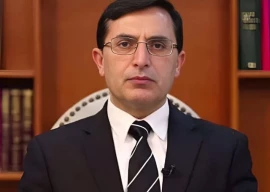


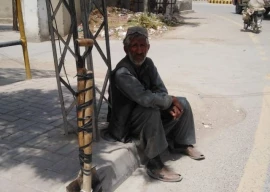
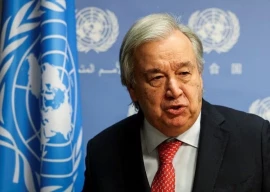
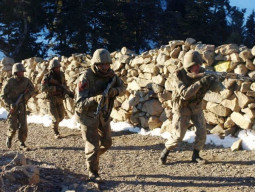






COMMENTS
Comments are moderated and generally will be posted if they are on-topic and not abusive.
For more information, please see our Comments FAQ